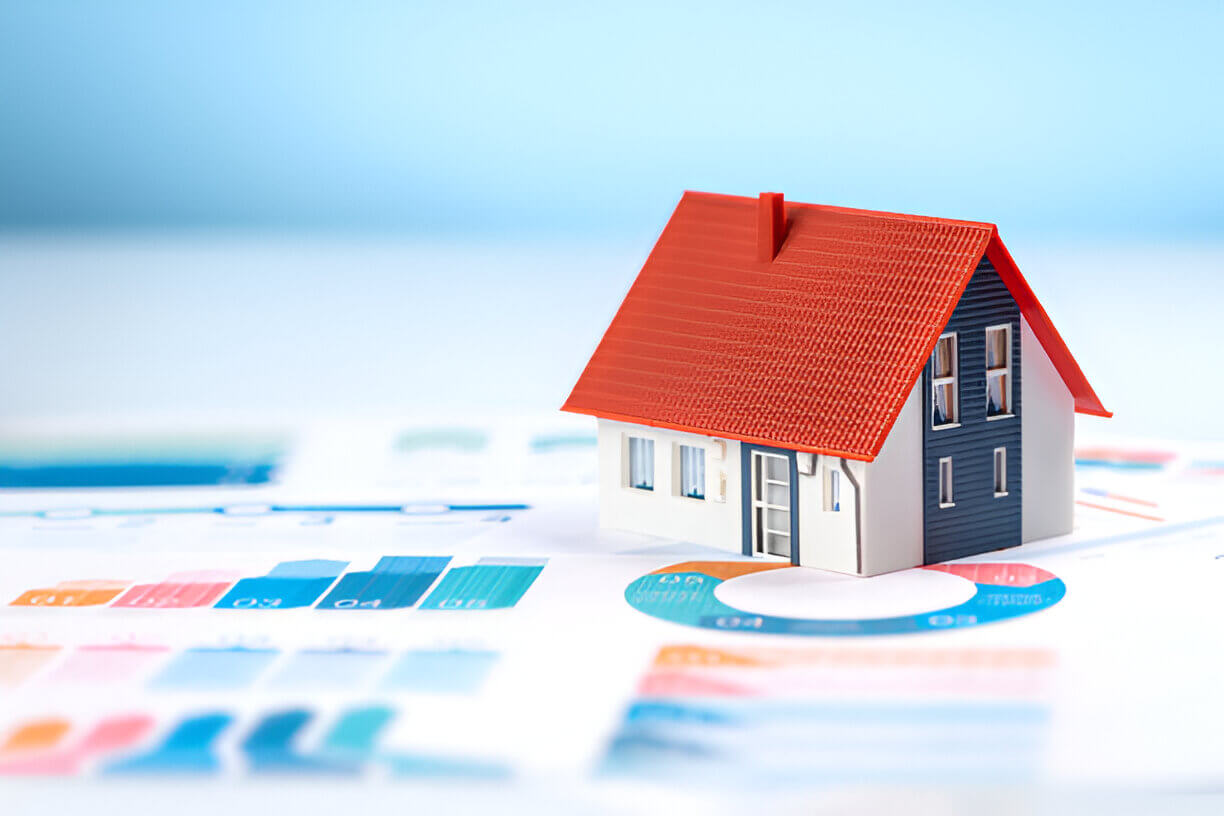There are two primary kinds of homeownership in the UK; freehold and leasehold. If you are wanting to buy a home or a flat, it is necessary to comprehend the difference, particularly if the residential or commercial property remains in London where over a 3rd of all homes are leasehold residential or commercial properties.
Whether you're purchasing a removed home around Wandsworth, Wimbledon Village or South Wimbledon, or a home in Battersea or Putney, you need to know precisely what sort of ownership you're purchasing.

What is the distinction in between freehold and leasehold? In this post, we'll break down the terms and cover some of the important things you need to watch out for if you are buying a leasehold residential or commercial property. We'll also share essential truths on the brand-new Leasehold and Freehold Reform Act, which is set to alter certain leasehold rules - continue reading for all the information.
What Is A Freehold?
Purchasing a freehold residential or commercial property provides the buyer sole ownership of both the structure and the land it rests on.
Most houses we sell in Wimbledon, Wimbledon Village, Coombe Hill, Kingston Hill and in other places in South West London are freehold residential or commercial properties.
Benefits Of Freehold
Owners of freehold homes can make any alterations they wish to the residential or commercial property - as long as they adhere to planning guidelines or, if needed, acquire Listing Building Consent.
There are no ground lease or service charges to pay, no time at all limit on your ownership of the residential or commercial property, and freeholders are not dependent on anyone else to keep the building.
What Is A Leasehold?
With a leasehold, the buyer owns the residential or commercial property for the duration defined in the lease contract. When the lease ends, ownership reverts to the freeholder. The lease contract will specify the number of years left on the lease.
Although leaseholders own the residential or commercial property's internal area, fittings, flooring and walls, they do not own the land the flat rests on or the fabric of the building, including the roof and external walls. As an outcome, leaseholders require consent from the freeholder to make alterations or add an extension.
Most flats and houses are sold as leaseholds.
The Impact Of The Leasehold And Freehold Reform Act
On 24th May 2024, the Leasehold and Freehold Reform Act 2024 became law in England and Wales as part of the 'wash out' ahead of the general election. The majority of the measures are yet to be rolled out, but crucial changes to be aware of consist of:
Redress schemes - freeholders must join one, and can be challenged if they stop working in their responsibility to the leaseholder.
Building management - it will end up being much easier for leaseholders to presume management.
New lease purchase and extension requirements - more leaseholders will get approved for the right to buy or extend their lease.
Longer lease extensions - rising from a basic 90 years for flats and 50 for homes, up to 990 across the board.
Ban on brand-new leasehold homes - under the changes, new houses need to be offered on a freehold basis most of the times.
Some mooted modifications were dropped as the costs gone through the House of Lords, though they might still lead the way for future changes. You can discover more information in the UK federal government's Leasehold and Freehold Reform Bill explanatory notes, readily available on gov.uk.
What To Consider When Buying A Leasehold Residential Or Commercial Property
Leasehold residential or commercial properties are a typical form of ownership, so there is no need to put off a purchase. However, there are some things you ought to remember.
1 Length Of The Lease
Lease length can differ substantially, so this is the very first concern you need to inquire about the residential or commercial property before choosing if it's the one for you.
A flat's original lease duration is likely to be a long period - often 99 years or 125 years and can be as high as 999 years. As time passes, the period staying on the lease decreases, so older residential or commercial properties may have much shorter leases.
Ownership of a leasehold home will go back to the freeholder once the lease runs out. Leases with 80 years or fewer are thought about short. Anyone buying a flat with a short lease will find it more difficult to get a mortgage.
If you have actually set your heart on a flat with a short lease, you shouldn't write it off completely. Government reforms revealed in 2021 make it less expensive and more accessible for leaseholders to acquire lease extensions, while the Leasehold and Freehold Reform Act ought to make the procedure even easier. You can likewise make it a condition of sale that the vendors start the procedure of extending the lease before you handle the residential or commercial property.
2 Extending The Lease
Most leaseholders get a lease extension long before it reaches no years. Extending a lease can be an intricate legal procedure - though the Leasehold and Freehold Reform Act aims to streamline it. The cost is chosen by negotiation between the leaseholder and the freeholder and depends on the residential or commercial property's value.
Previously, different types of residential or commercial property (flat or house) have actually taken advantage of various standard extension lengths. However, new federal government legislation gives the leaseholder the right to extend their lease by approximately 990 years. The reforms consist of set estimation rates to make sure lease extensions are fairer, less expensive and more transparent.
Read more about the expenses and procedure of how to extend your lease.
3 Leasehold Service Charges
To cover the costs of keeping the building's structure and the advancement's communal locations, the property owner or managing representative will enforce a service fee.
While costs vary depending upon the size of the advancement, some service fee include contributions to a reserve or sinking fund that is used to cover large one-off expenses.
4 Ground Rent
Ground lease is a fee payable to the proprietor every year or half-yearly. While it is usually a token payment in the region of ₤ 200 or ₤ 300 a year, some property managers can charge thousands of pounds each year.
Beware that the property managers of numerous new-build developments have been inserting clauses into the leases, allowing for dramatic boosts in ground lease. However, the new Leasehold and Freehold Reform Act might lead to a peppercorn lease in future.
5 Management Disputes
It is common for disagreements between leaseholders and freeholders to arise. The most common complaint is that the freeholder does not maintain the building to an adequately high standard and overcharges for service fee and ground rent. The 2024 legislation intends to make charging structures more transparent, but this will take time to come into result.
Before buying a leasehold residential or commercial property, try to discover out as much as possible about the handling agents by talking to the existing homeowners or browsing on the internet.
What Is The Price Difference Of A Freehold Vs Leasehold
In South West London, the rate of a freehold residential or commercial property tends to have a greater value than leasehold residential or commercial properties. However, many homes with long leases sometimes have a cost variety comparable to freehold residential or commercial properties.
The range in rate depends on lots of factors, from the location to the residential or commercial property size. You may not be comparing like with like, so when you buy or offer a home, think about - is my residential or commercial property freehold or leasehold? If it's leasehold, how many years are left on the lease?
Whilst the cost distinction between long leasehold and freehold might not be substantial, the difference in between brief leasehold vs freehold can be dramatic. You would only own the residential or commercial property for a restricted timeframe and need to consider the costs of a lease extension.
Can I Buy The Freehold Of A Leasehold Residential or commercial property?
A leaseholder can purchase a share of the freehold together with the other citizens of the apartment block. However, the process can be complex and costly.
You'll need to satisfy the terms of the Leasehold Reform Act 1967, such as holding the lease for the entire residential or commercial property for a minimum of 2 years. Seeking independent legal and monetary recommendations is highly advised.
Just how much Does It Cost To Buy A Freehold?
The cost of buying a freehold differs, though it's often comparable to an 80-90 year lease extension. The cost should be concurred by both celebrations, or settled individually at a tribunal.
Represent the expenses connected to purchasing a freehold too, consisting of:
- Land computer registry charges
Stamp Duty
- Your legal costs and appraisal fees
- The freeholder's legal costs and appraisal costs
Though under the new legislation, leaseholders might no longer be obliged to cover the freeholder's legal costs in every circumstance.
What Is A Flying Freehold?
Flying freeholds cover residential or commercial properties that overlap land owned by somebody else. Some mortgage service providers don't lend for flying freeholds, so ask questions before taking your application further.
You may encounter a flying freehold on residential or commercial properties that:
- Extend over a shared passage
- Are maisonettes or houses where areas are owned under different freeholds
- Have a terrace over another residential or commercial property
- Include basements or cellars below a neighbouring residential or commercial property
Should I Buy a Leasehold House?
Based upon your circumstances, you can choose if the price distinction in between freehold and leasehold represents a bargain. Consult, and consider the residential or commercial property together with the broader benefits and drawbacks.
Freehold Properties: Pros And Cons
Here are some benefits and drawbacks of a freehold residential or commercial property to think about:

- You would own the residential or commercial property and the land
- You have control of the residential or commercial property
- You have ownership until you sell
- There are no service charges or ground lease
- The residential or commercial property worth will not reduce due to the lease length
- Generally, more costly to purchase
- You are accountable for all the expenses of owning residential or commercial property, consisting of building insurance coverage, upkeep and improvements.
Leasehold Properties: Advantages And Disadvantages
What are the pros and cons of a leasehold residential or commercial property? These positive and negative distinctions in freehold and leasehold are worth thinking about:
Pros
- Generally cheaper to buy
- You would not be accountable for the common areas
- You would not require to keep the structure of the building
Cons
- The value of the residential or commercial property will decrease as the lease length minimizes
- If the lease length is short, it might be challenging to offer the residential or commercial property
- Permission might be required before making changes to the residential or commercial property
- There might be restrictions on how you can utilize the residential or commercial property
- You are responsible for associated expenses, consisting of ground rent and service charges.
It's vital to discover the best service for you, by examining your own individual and monetary scenarios, before deciding if a freehold or leasehold residential or commercial property is for you. Every lease is different, so check the lease terms to avoid any unexpected costs.
Commonhold Properties
Commonhold is an alternative type of residential or commercial property ownership promoted by anti-leasehold advocates. The structure and land are divided into systems (for example, flats) and common parts. There is a signed up title with the Land Registry for each unit and one for the typical elements.
Therefore, the flat owner will own the freehold of the system, so there will be no time limitations, as there are with leasehold arrangements. The freehold of the common parts is owned by a commonhold association that will handle the structure's common areas. Unit owners have a right to be members of the commonhold association.
If you have any questions about leasehold vs freehold residential or commercial properties, or if you are seeking to buy, sell, rent or let a residential or commercial property in the Wimbledon location, call us today.

Residential or commercial property Valuation?
Looking to Sell or Let Your Residential or commercial property? Book Your Free Residential or commercial property Valuation with one of our experts.





